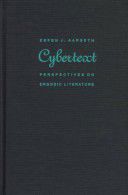Ergodic

This word has been used in many contexts. It’s originally related to mathematics, but has been repurposed in several domains.
Generally, it means that a system which appears to be chaotic will eventually return to a previously-known state. So, if we consider one combination of all variables in a system as a “state,” an ergodic system will eventually return to that state at some point.
(…I think. Seriously, it’s complicated.)
I found the word in relation to interactive fiction. An author proposed a new phrase – “ergodic literature” – to refer to fiction that is non-linear and requires effort on the past of the reader to consume.
The adjective I propose for this function is “ergodic,” which implies a situation in which a chain of events (a path, a sequence of actions, etc.) has been produced by the nontrivial efforts of one or more individuals or mechanisms.
Now, that doesn’t totally fit the original, mathematical description, but it implies a system in which any moment is a collection of variable states.
Why I Looked It Up
I originally found the word from an article called The Best Ergodic Fiction. The summary of that article reads:
The best fiction doesn’t have to be straightforward, and some novels contain clever devices to make the reader complicit in the story itself. [This article] recommends five gamified novels that subvert our ideas of how fiction works.
The quote in the explanation is from the book Cybertext: Perspectives on Ergodic Literature (cover above), which is generally considered the source from which it was coined.
Update
I noticed that I have “ergodicity” listed as another name for The Gambler’s Fallacy.
Update
Added on
In Knowledge and Power, I found this:
[these things are] a mouthful of philosophical cogs, pins, widgets and chemical elements. In information theory, these factors represent an “ergodic” universe, which assures that the same functions will reliably produce the same outputs. Ergodicity is crucial to any predictive model.